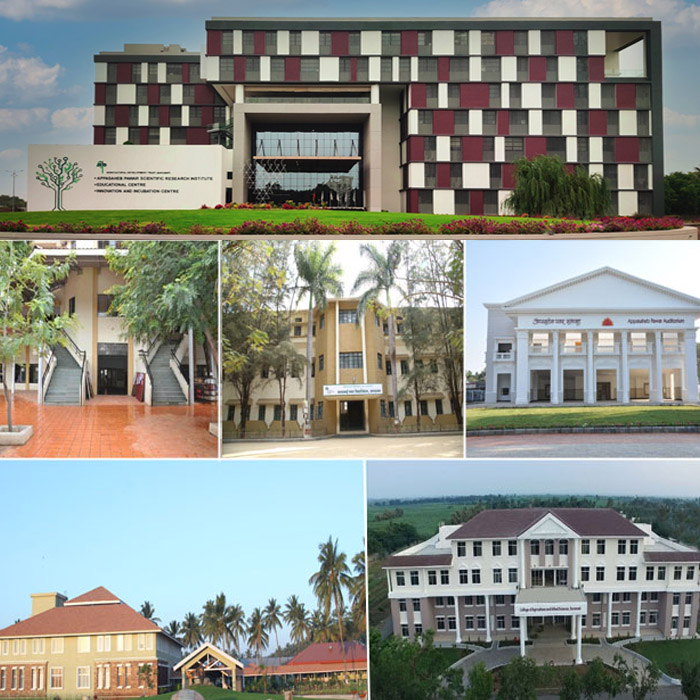About ADT
A Journey of Resilience and Transformation
Founding and Early Efforts
In 1890, the Baramati region faced severe famine, leading to widespread starvation and unrest. In response, the British colonial administration initiated the construction of critical irrigation infrastructure, including the Nira Left Bank Canal, Khadakwasla Canal in Pune, and the Krishna Canal near Karad. By 1930, the Loyed Bhatghar Dam on the Nira River was completed, providing much-needed water to twenty-two villages within the Baramati tehsil. This development was pivotal in an agrarian economy heavily dependent on monsoon rains, especially in the rain-shadowed Baramati region, which traditionally received minimal rainfall.
Despite these efforts, a disparity remained: while twenty-two villages benefited from the Nira Left Bank Canal, forty-three villages continued to suffer from water scarcity, forcing many residents to migrate in search of livelihoods. In this challenging context, two Australian women from the Church Auxiliary for Social Action (CASA), Miss Hessel Skues and Miss Edna Wazar, began distributing free wheat and oil to the famine-stricken populace, providing crucial humanitarian aid. In 1965, Sharad Pawar, a visionary young graduate known as the "Son of the Soil," recognized the urgent need for sustainable water management to transform the region's agrarian crisis. Identifying approximately 200 seasonal streams that dried up quickly, Pawar proposed constructing percolation tanks to capture and store monsoon rains. Lacking initial funding, he collaborated with Miss Skues and Miss Wazar to implement the "Food for Work" scheme, resulting in the first percolation tank at Tandulwadi in 1967. Over the years, Pawar successfully spearheaded the construction of eighty percolation tanks, significantly enhancing water availability during monsoon seasons. Establishment and Expansion of the Trust By the 1970s, drought remained a persistent threat to Baramati’s agriculture. Recognizing the critical need for water conservation and scientific agricultural practices, Sharad Pawar founded the Agricultural Development Trust in 1971.

Seeking international support, he secured financial assistance from organizations such as Christian Missionary Lutheron World Relief (USA), Christian Aid London, and Teredes Home (Germany). With backing from the Central Bank of India, farmers received loans for well digging, and partnerships with companies like Kirloskar Oil Engines facilitated the provision of affordable agricultural machinery.
Under Pawar’s leadership, the Trust constructed nearly 289 percolation tanks across forty-three villages, transforming the agricultural landscape. His election as MLA in 1967 and subsequent appointment as Minister of State for Agriculture and Food Supplies in Maharashtra in 1972 further amplified the Trust’s initiatives.
Leadership and Innovation
Due to his political commitments, Sharad Pawar entrusted the Trust’s leadership to his elder brother, Appasaheb Pawar, in 1976. Appasaheb’s 1970 visit to Israel inspired the adoption of advanced irrigation techniques, leading to the establishment of a 110-acre demonstration farm near Malegaon (Kh) village. Over a decade, barren land was transformed into a productive agricultural hub, educating thousands of farmers in modern practices such as fertigation, organic farming, and dryland horticulture.
Diversification and Community Development
The Trust expanded its scope beyond agriculture to include dairy, poultry, goatery, nursery, and agri-processing, significantly enhancing farmers' incomes and improving living standards. Mechanization initiatives enabled farmers to adopt tractors and electric pump sets, boosting agricultural yields. Additionally, the Trust supported entrepreneurship and small agri-allied businesses, ensuring diversified and sustainable livelihoods.
Recognizing the importance of health and education, the Trust introduced mobile dispensaries and veterinary services, increasing health awareness in the region. Appasaheb Pawar’s commitment to female education led to the establishment of the Shardanagar Education Complex in 1989, comprising primary and secondary schools, women's colleges, teacher training institutes, nursing colleges, and hostels accommodating 800 girls. Today, approximately 6,000 female students benefit from these educational facilities.
Continuing the Legacy
Following Appasaheb Pawar’s passing in 2000, Rajendra Pawar and Sunanda Pawar assumed leadership, further diversifying the Trust’s initiatives into environmental conservation, food processing, and women’s self-help groups. They established the Shardanagar Education Complex as a premier women’s educational hub and initiated international collaborations with institutions like Van Hall Larenstein Institute (Netherlands), UC Davis (California), Asian Institute of Technology (Bangkok), and Yunan Agri University (China).
A Vision Realized
From its humble beginnings addressing famine relief to becoming a multifaceted conglomerate, the Agricultural Development Trust continues to embody the vision of its founding brothers. By fostering education, advancing agricultural practices, and promoting sustainable community development, the Trust remains a beacon of progress and prosperity in the Baramati region.